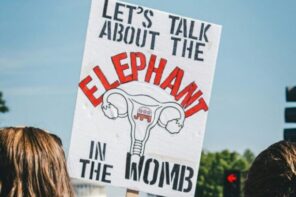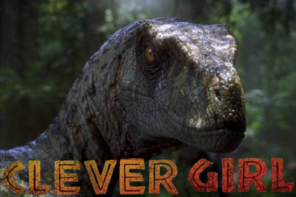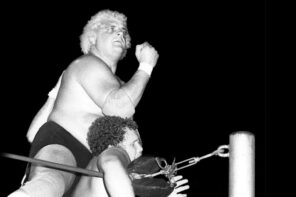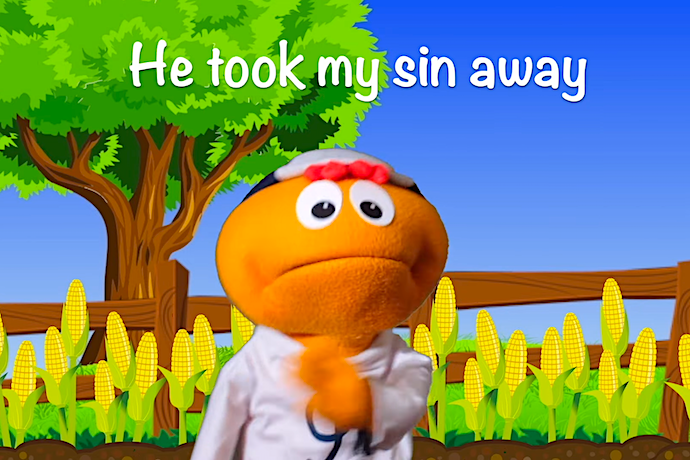Jason Kirk’s first novel, Hell is a World Without You, tells the coming-of-age story of a grieving teenager in the American evangelical subculture of the 2000s. The details that make it feel authentic to those of us who grew up in this milieu will be fascinating to those who didn’t.

Hell is a World Without You
Jason Kirk
Shutdown Fullbooks
Dec, 2023
RD spoke recently with Kirk, a senior editor at The Athletic and co-creator of several popular podcasts, about the book, Christian Nationalism, Hell, and what it means to believe.
This conversation has been lightly edited for length and clarity.
RD: Jason, thanks for taking the time. As I’ve said before, reading Hell is a World Without You was a bizarre experience, both as a scholar of American religion and as a former pastor’s kid. It’s such a sharp rendering that’s neither apologetic nor a parody. And, despite being set in high school during the early 2000s, it has a lot to say about the current moment. At times it had me thinking of it as a prequel to January 6th. How does the early 2000s landscape relate to American Christianity today? And how many of the novel’s telling details came from your own experience?
JK: All the right-wing stuff with which my characters interact (persecution-complex song lyrics, casual misogyny, presumed queerphobia, etc.) could’ve been drawn from my memories alone, though I also studied. And I tried to show parallels with non-evangelical politics, because there’s no problem we can blame on only one kind of Christian. Jerry Falwell, conservative Catholics, and Rush Limbaugh were saying the same things, after all.
I view 9/11 as pivotal, but not because anything changed, really. Right-wingers just started narrowing their list of in-group traits. The 2016 election, when so many Christians renounced their late-’90s “character matters” mantra, was another unmasking.
On January 6, I remember looking down from the captured Capitol on my TV and seeing words I’d written about 2000s teenagers who’d been drowned in Christian nationalist rhetoric. Did any of my characters grow up to appear in that image on TV? One of the book’s goals clicked into place: show normie readers how squarely they would’ve been placed onto that path if they’d grown up like this.
The other goal: show people who grew up as evangelical misfits that we were never as alone as we felt.
That last point definitely hit for me. But I did wonder how well those normie readers would make sense of the book. One evening, I happened to mention Carman (the Christian musician and evangelist who gets a few references in the book) to my partner, and she had no idea what I was talking about. I took her on a YouTube rabbit hole of Carman videos, which she found horrifying. What have you heard from readers who didn’t have firsthand experience?
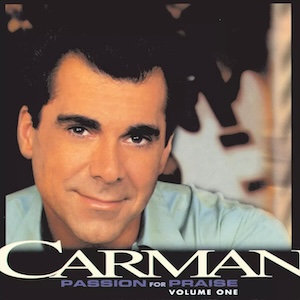 I treated it like a sci-fi story. Within a few pages, I need the reader accepting that these are kids who flirt at summer camp, then wallow in sincere guilt, and then get back to flirting. And every day, I hear from someone who didn’t grow up evangelical, yet says they’re shocked by how relatable they found it.
I treated it like a sci-fi story. Within a few pages, I need the reader accepting that these are kids who flirt at summer camp, then wallow in sincere guilt, and then get back to flirting. And every day, I hear from someone who didn’t grow up evangelical, yet says they’re shocked by how relatable they found it.
Some readers have told me they went on Spotify deep dives to catch up on the musicians I mention, while others just picked up on the references they did know (yep, Sixpence None the Richer and DMX were Christian musicians, albeit in very different markets) and treated the rest as scenery. Mainly, I need the reader to know they’re reading about a world with its own history, one that includes things called Gerbert and James Dobson and a literal Satan, all of whom are tasked with controlling kids. (Sorry, Gerbert.)
Mike, as someone who thinks about religions as collections of signifiers we use to decide who is (and isn’t) in our group, what do you see as the commonalities between high-control religious environments like these and other societal systems?
For me, this is one of the fundamental ways society works. One of the questions throughout your novel is what does it mean to believe something? and you show how belief is not about some assent to an idea but about being part of a group. We don’t have beliefs so much as we identify as the kind of person who believes. What we think of as our beliefs are ways that we recognize ourselves. So, when the beliefs that make us part of a group tell us that we’re broken, shameful, or guilty and under attack from outsiders, it becomes really damaging. A lot of scenes in the book illustrate how that works. It’s also why your characters grow by building a new group identity.
Another thing about belief, though, that jumped out to me is the moment where you draw a comparison between Pastor Jack, the head pastor of the church, and the Undertaker, the undead former WWE champion and current old White Texan guy. Sometimes belief, like professional wrestling, is a performance. Not that it’s an entirely inauthentic performance. Pastor Jack, like all pastors with notoriety, has to put on a show. He has a gimmick. How do you think about that performative element in American Christianity, and how did it shape the way you wrote about this world?
Collective experience only works if we agree it works, right? Whether it’s a concert, sporting event, scripted sporting event, or religious service, the only way to taste joy is to follow conventions. It’s working for everybody else, after all—or at least it appears to be.
Pastor Jack reminds me of Neo-Calvinist superstar pastors, a scandal-plagued televangelist or two, and pro wrestlers like the late Windham Rotunda, who portrayed charismatic cult leaders with whom the audience simply agreed to play along, which caused eerie magic to happen, for better or worse.
That brings me to a central theme of the novel: Hell. After reading, I realized that despite all the talk about Jesus, God, and country, the form of Christianity you depict is really all about Hell. More than anything else, the belief in a literal Hell is the heart of this social formation. In an early draft, Hell wasn’t in the title. Did you know how central Hell was when you started?
After a thousand-plus years of Christian leaders using Hell as an attack dog, one of several consequences is this: An obsession with the afterlife leads us to ignore the Hell all around us. It’s no coincidence that some of the world’s most privileged people fantasize about leaving everyone else’s problems behind, while liberation theologians preach about the Kingdom of God being at stake on Earth.
The first scene I wrote was about a violent conflict between teenagers and a church elder. Eventually, I realized that conflict would be about what it means to throw away belief in eternal conscious torment. The arrogant recklessness of that, if Hell is proved to be real. But also the liberation, if it turns out we can’t just discard our inherent responsibilities to each other.
While playing Diablo II and listening to emo, my characters explore theological rabbit holes that lead them to glimpse ancient Eastern Christian theologies of universalism. For them, learning about Saint Gregory of Nyssa feels just as forbidden as everything else they’re up to in that basement.
Is this an “exvangelical novel?”
On one level, absolutely. I view its setting as 2000s American White evangelicalism. I also view the word “exvangelical” as following in the tradition of Jesus telling his immediate followers that they were born into a world, but are not of it. Or the Hebrew Bible instructing its immediate audience to define themselves by their ancestors’ escape from oppression and to pay that liberation forward.
On another level, it’s not about evangelicals or Americans. Evangelicals have a lot of bad ideas, but they invented roughly zero of them. It’s about self-hatred vs. learning to love your neighbor, a battle we’ve all been fighting since way before Billy Graham started yelling about communists.
I also want to note that you donated the first three months’ worth of the book’s proceeds to the Trevor Project. Why did you want to do that? And how much did you end up raising?
Growing up, I saw my LGBTQ friends being abused by religious and political leaders, and I took that personally. Thanks to people who bought hundreds of high-priced hardcovers (plus our thousands of normal sales and sold-out launch party), we’re in the middle of donating $56,000 to the charity helping to keep LGBTQ kids alive.
That’s amazing. Thanks for that and thanks for the time to have this conversation!




